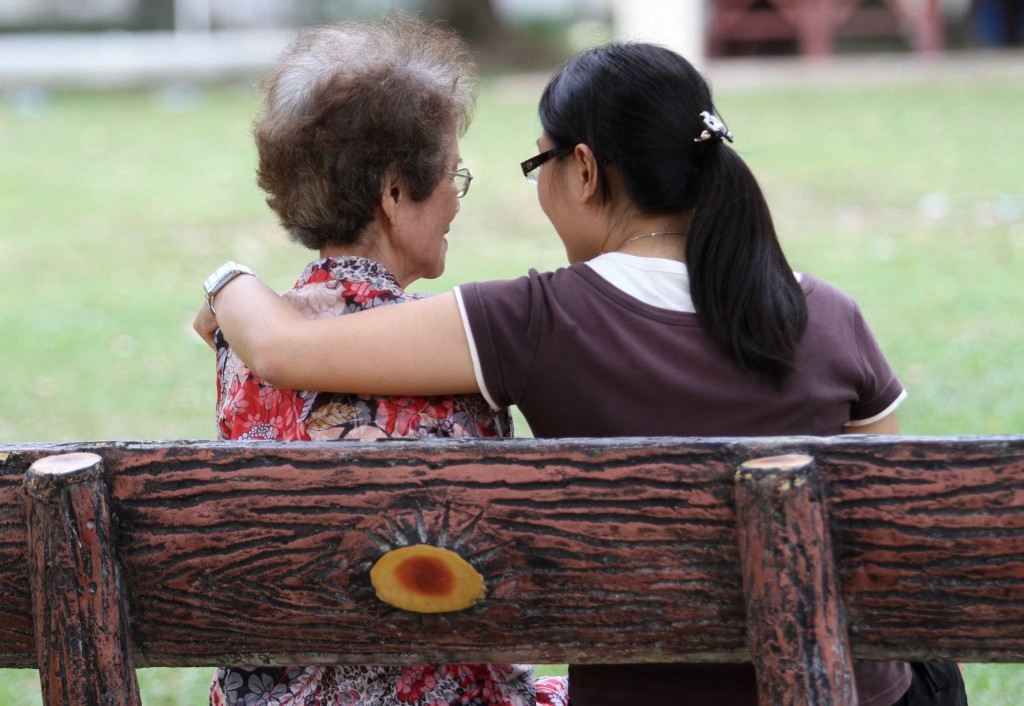By CHRISTINE CHEAH and VIVIENNE WONG
alltherage@thestar.com.my

If your parents are not insured yet, it is advisable to buy them insurance before they are ineligible, advised financial planners to the young people.
THE phrase “fillial piety” seems to have been going around more often than usual over the last few weeks.
After The Star uncovered the story of five old folks who were abandoned at an empty home, there’s been quite a bit of soul-searching among Malaysians on how we treat our elderly.
So we decided to talk to some young people, and find out just how important planning for their parents’ futures is to them.
Universiti Putra Malaysia computer science undergraduate Luqman Ramli, 21, said he’ll definitely take care of his parents when they’re old, but he just hasn’t got down to planning it yet.
Luqman has a good example from his parents, who visit his grandparents regularly and give them money to help with household bills.
“The rising cost of living might be getting higher, but if I have to work harder to support my parents (financially), I will definitely do it,” he said. “And if my parents need me to physically care for them, I’m willing to take up the task. If my workload makes it impossible, then I’ll ask my children and siblings for help.”
Growing pains
While most young people we spoke to were happy to care for their parents just like Luqman, the statistics we found make for uncomfortable reading.
An alarming 675,000 old folks did not receive financial support from their children in 2004, and on top of that, The Star revealed just two weeks ago that 10 elderly Malaysians are checked into old folks homes every week (based only on centres registered by the Welfare Department).
The high intake at old folks’ homes is not necessarily a bad thing, as according to Venssi Kasinathan, owner of the Venssi Old Folks’ Home in Penang, the 25-30 old folks at her home are mostly happy.
“Their families bring them in but the old folks are happy because they understand their children need to work, and they are well taken care of,” she said.
However, in a welfare society in the Klang Valley where old folks are housed free-of-charge, the situation is quite different.
“This is a hotel where people check in, but never check out. The people who come to us are usually families that are not well-off and have family squabbles,” said the society’s full-time manager Kelvin Wong.
“If you asked the old folks here if they’re happy, they would say yes. But deep down inside, would you be happy if it’s Chinese New Year and you’re stuck here?”
He added that the society has now reached its maximum capacity of 120 old folks, and yet they still receive calls from hospitals asking them to take in old folks who have been abandoned by their children.
“There are two major groups of people here – the less fortunate, and those who planned for their retirement earlier and do not want to burden their children,” said Wong.
Planning ahead
As much as young people should plan for their parents’ later years, financial planner Yap Ming Hui believes that they should plan for their own retirements first – and recommends that young people encourage their parents to do the same.
“Young people in Malaysia on average salaries hardly earn enough to save for themselves,” said Yap.
“It would be better for them to save for themselves first, and just make sure their parents have a good medical insurance policy.
“They can share the premium among their siblings to lessen the burden.” Choo Choon Sian’s parents, for example, were never educated on the importance of medical insurance, and now it’s up to him to pick up the pieces.
“I’m worried because my dad has passed the age to buy insurance, and my mum has two more years to go but I can’t afford it now as I’m just starting my own business,” said Choo, 24, an only child.
Nevertheless, Choo is adamant that he will never send his parents to an old folks’ home.
“I may not be able to provide for them financially at the moment, but I’ll make sure I’ll be physically there to take care of them.”
Role reversal
According to Yap, most working young Malaysians do factor in an allowance for their parents when they’re planning their finances,
but it’s a trend that’s slowly dying.
“With the current cost of living, it’s just not possible. When I got married, I had no car, no handphone, no credit card; so setting aside RM400-500 for my parents wasn’t a problem.
“Now young people have smartphones, data plans, car loans, housing loans. How much do they have left to save?” said Yap.
In fact, Yap said it is increasingly the parents who are helping their children now, especially with things like property down-payments.
“The roles are reversed now. Many of my older clients tell me they don’t think about allowances from their children – they’d be happy enough as long as the children don’t ask for money!” he said with a laugh.
All young people can hope to do now, said Yap, is to start planning their finances as early as possible.
On that point, KC See, CEO of wealth creation company MasteryAsia, recommends a simple formula – put aside 20% of your income every month, and force yourself to survive on what’s left.
He added that Malaysia’s household debt is currently at an all-time high – 83% of the country’s gross domestic product – and it’s the younger generation that’s piling the debt on itself.
In other words, start saving now.

Tell us what you think!